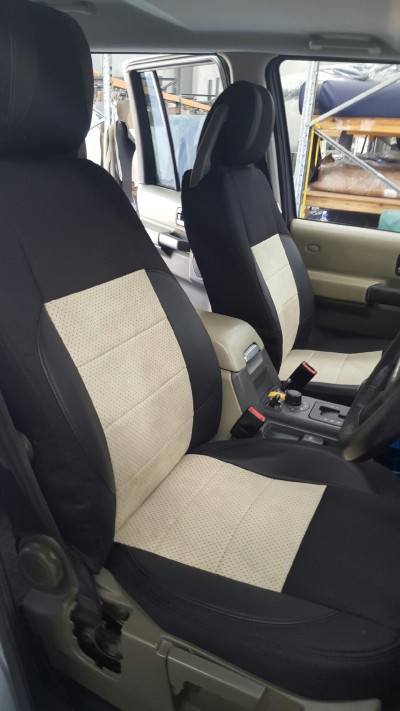
Although the word canvas has become synonymous with the medium artists paint on, it is not the only place the fabric is used. From totes and shoes, articles of clothing to our heavy-duty canvas seat covers, there’s so much that you can do with this versatile fabric. But to better understand why we chose canvas as the fabric to manufacture our seat covers in, it’s important to look a little in detail at the fabric, how its made and what makes it so perfect for our use.
What is Canvas?
One of the most used fabrics in history, canvas has been used by ancient civilisations as early as 1500 BC. It is believed that the word ‘canvas’ is derived from the Latin word ‘cannabis’ or the Greek word ‘kannabis’, both meaning ‘hemp’. Although the Ancient Greeks are considered to have been the ones to popularise the use of canvas, it was originally weaved from cotton in Ancient India around 1500 BC and was used to create sails. It came into common usage in the 16th century during the Italian Renaissance where it was primarily used as a painting medium. Increasing global trade popularised the hardy material throughout the world and today it is being used to create tent material, casual shoes, designer handbags as well as our premium heavy duty canvas seat covers.
How is Canvas Made?
Typically made of cotton or linen today, canvas was also previously made from hemp or PVC, although these have become less common today. Canvas is made by tightly weaving cotton or linen fibres in a plain weave, which is one of the most basic types of textile weaves. The fibres used to weave canvas are thick, ranging from medium to heavyweight threads. This weight of the thread and the plain weave technique is what separates canvas from other fabrics. Although canvas is fairly similar to denim in its thickness and durability, denim is typically created using a twill weave which is what sets it apart from canvas.
Because of the thickness of the fibres used when weaving canvas, the thread count of the material is typically low, ranging from 50 to 100. When it comes to canvas, the higher the thread count of the fabric, the lower its durability but the higher will its softness be.
How Many Types of Canvas Are There?
There are two basic types of canvas, plain weave and duck weave:
- Plain weave: This is the most common form of canvas available today and is created by weaving one string under and then over the next perpendicular string. It is the simplest weave with a relatively loose weave, which keeps costs down while offering long-lasting durability to the fabric.
- Duck weave: The heaviest grade of cotton canvas, duck weave is more tightly woven but uses thinner threads and gets its name from the Dutch word, ‘doek’ which means cloth. This type of canvas is typically used for cloth and apparel because it is softer and finer than plain weave. It is also only made from cotton and has a classification system ranging from grades 1 to 12, with 12 being the lightest and 1 being the heaviest.
What Makes Canvas So Special?
The reason why canvas is our preferred fabric for our custom car seat covers is due to the many benefits it offers. Our car seat covers are designed for heavy usage and are perfect for the adventurer, trades person or anyone who is frequently on the road and doesn’t want to be changing their seat covers every two months. Here are some of the reasons why canvas is so special:
- Water-resistant
Cotton canvas is naturally water-resistant, but an additional water-resistant finish will further enhance its waterproof qualities. The tight, thick weave of canvas prevents water from seeping through the gaps. When exposed to water, the cotton fabric swells, making the gaps between the weaves even smaller, preventing the liquid from soaking through the fabric. This is why it is so popularly used for outdoor applications.
- Sturdy
The thick yarn used to create this fabric as well as its tight weaves make this an incredibly sturdy material that does not yield to frequent stress or tugs. Our heavy-duty canvas seat covers are also made with a tear-resistant rip-stop technology that combines blended polyester and cotton yarn to offer even more durability and strength to the fabric for the hardest of applications.
- Weather-resistant
Not only does canvas prevent water from seeping through it, it is also highly UV-resistant, rot and mildew as well as wind-resistant. The harsh Australian sun can bleach colour even from the hardiest of fabrics, but the tight weave of canvas helps it retain dyed colour even under harsh environmental conditions. This is what makes it such an incredible material for our canvas seat covers.
- Cost-effective
Because our heavy-duty canvas seat covers are so durable and hardy, you’re no longer going to be changing seat covers every few months due to wear and tear. This results in saving more money in the long run as well as added protection for your car seats.
